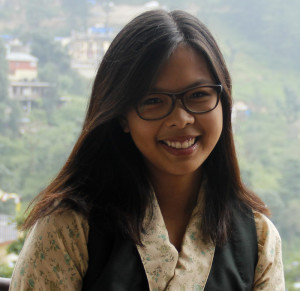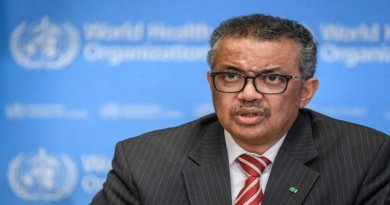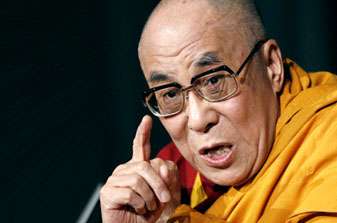‘Arbitrary’ dance of Tibetan democracy
Tashi Shitsetsang | November 7, 2015
 The preliminary election of Sikyong (Tibetan Political leader) and members of the 16th Tibetan Parliament-in-Exile recently took place across the globe. I felt very excited to make use of my rights as a Tibetan Green Book holder for the first time. I was ready to finally embrace our democracy, but what awaited me was truly shocking and slightly disappointing. Heavy imputations, vague rules and regulations and arbitrary changes brought a lot of confusion and debate among the Tibetan community in exile.
The preliminary election of Sikyong (Tibetan Political leader) and members of the 16th Tibetan Parliament-in-Exile recently took place across the globe. I felt very excited to make use of my rights as a Tibetan Green Book holder for the first time. I was ready to finally embrace our democracy, but what awaited me was truly shocking and slightly disappointing. Heavy imputations, vague rules and regulations and arbitrary changes brought a lot of confusion and debate among the Tibetan community in exile.
Open letter to the Sikyong, Kashag and Election Commissioner
Before the elections even started, an open letter dated Oct 13, in which 27 Tibet support groups raised their concerns over the procedures of the 2016 elections, went viral. They brought up several issues, including the Election Commission (EC) turning a blind eye on the complaint ‘alleging that an incumbent candidate is violating the Election Commission’s prohibition on using official platforms for campaign purposes’. In an interview with Voice of Tibet on October 17(i), Sonam Choephel Shosur, the Chief Election Commissioner (CEC) stated that the Election Commission (EC) would only investigate such cases if evidence was provided to them. Moreover, the EC responded that they could not observe all non-compliance, which, like the open letter said, ‘raises the troubling possibility of selective enforcement’. Another topic was the provision of space for arbitrary interpretation through vague rules. When reading the electoral rules and regulations, it immediately stands out that the articles can be interpreted in several ways.
Rules on campaign expenditure
Article 25 (9a) in the electoral rules and regulations states ‘The maximum expenditure allowance for each Sikyong candidate is eight lakh Indian rupees (Rs. 800,000), whereas the maximum expenditure allowance for each MP candidate is three lakhs Indian rupees (300,000)’.[i] Although the compliance of it is nearly impossible, considering the fact that Sikyong candidates have to travel all around the world for their campaign within that budget, these limits are a good attempt for fairness and transparency.
However, certain organizations that want to financially support a candidate are free from these restrictions. The Asia Democracy Network (ADN), the Asian Forum for Human Rights and Development (FORUM-ASIA), and the Asian Network for Free Elections (ANFREL) have served as watchdogs in the recently concluded preliminary elections. In their review of the preliminaries, they raised a legitimate concern stating: “In this case, the exemption of certain recognized groups from these spending limits damaged the credibility of the campaign finance rules and unnecessarily tilted the campaign playing field towards those candidates with backing from the outside recognized groups.” The same issue was raised in the above-mentioned open letter. Their accusations are extremely severe: constraint of the right to free speech and inconsistency of human rights. On October 27, the EC published a clarification [ii] simply stating that ‘These directives of the Election Commission, do not in any way, infringe on the right to free speech, association and campaign rights of any candidate, nor do they contravene any international human rights laws’ and that they do not possess any authority to approve these particular organizations. They stated that the decision to recognize a group lies in the hands of the Kashag (Tibetan Cabinet). What makes this selection questionable is the secrecy of the criteria, which the organizations have to meet.
With the additional rule, the campaign expenditure limits serve no purpose anymore. Either, the extra rule has to be abolished to provide level playing field for all candidates or the disclosure of the criteria must be provided so that there is transparency and the Kashag’s decision is comprehensible. In an interview with Tibet Express [iii], the CEC asserted that ‘the directive for campaign expenses was passed to raise awareness among the Tibetan people about the importance of transparency of campaign expenses during elections’. What the EC is apparently not aware of is the importance of the implementation of all necessary measures in order to provide equal opportunities and the best possible transparency.
New 20% regulation in the Sikyong election
On October 19, the EC issued a circular announcing the number of candidates to be shortlisted for the final round of the Tibetan elections. Article 67 of the electoral rules and regulations [iv] says that the EC will not shortlist less than two Sikyong candidates for the final election. In the circular, the EC added: “However, if the vote margin between the second and third candidate is less than 20% in the preliminary election, three candidates shall be shortlisted for the final Sikyong election.” This incomprehensible new rule was not a real surprise given the fact that the EC kept quiet about the number of Sikyong candidates in the final round for a long time.
As part of the Europe tour, the CEC held a public talk in Switzerland on October 3 which I attended. The main goal of this tour was to raise awareness about the elections and their procedure. During the Q&A session [v], one of the attendees inquired whether the number of candidates for the final Sikyong round would be announced before or after the preliminaries and if it’s announced after the preliminary election, why that would be so. Sonam Choephel Shosur, as I predicted, had no straight forward answer to these questions. He explained that there would be six Sikyong candidates for the preliminary elections but he did not mention a single word about the number of Sikyong candidates to be shortlisted for the final round. Instead, in a bid to circumvent the specific question regarding the Sikyong candidates, he said ‘if there were ten Chitue seats, there would be 20 Chitue candidates for the final round. At that point I knew that issues like transparency and honesty did not matter much to the EC. I felt that, even as the first round of elections was nearing, they were still trying to fool us.
What makes one question this new 20% regulation even more is the fact that in the last elections, this rule did not exist. Tashi Wangdi, the third candidate in the previous election, was allowed to contest in the final round although the vote margin between him and Tenzin Namgyal Tethong, who stood second, exceeded 20%. In the interview with Tibet Express mentioned above, the EC explained that this rule is to ensure that the third candidate would be included if he fulfilled the given condition ‘because we found it important as it reflects people’s choice’. What they probably did not think of is the fact that, like me, many people are now left with basically no choice for the final round because neither of the two candidates who are likely to advance to the next round, Lobsang Sangay and Penpa Tsering, represent their opinion. Without Lukar Jam, who is likely to secure the third place in the preliminaries, diversity of ideology of the Tibetan people is not expressed.
Furthermore, the most suspicious thing is the timing of the announcement. In an interview with Phayul [vi], Sonam Choephel Shosur said: “The declaration of the number of candidates to be shortlisted for the final election was made before the results of preliminary is announced to avoid any criticism against the EC for being biased.” If this corresponds to the truth, there is no legitimate reason left for the timing of the announcement, which was made after the first results of the preliminaries appeared online.
Although it is hard to say that this was deliberate, it is not difficult to believe that the purpose of the 20% rule is to exclude Sikyong candidate Lukar Jam from the race. Tenzin Nyinjey, Senior Researcher at the Tibetan Center for Human Rights and Democracy (TCHRD) [vii] says : “Because, without him and his arguments for independence, there shall be no serious debate in the finals, since both likely candidates – LobsangSangay and PenpaTsering- are middle pathists.”
As a Tibetan, I have utmost pride in the establishment and existence of our government and democracy although our country is occupied by China. I am endlessly grateful to be able to vote and appreciate the Central Tibetan Administration and EC for providing us this right. I do realize that it takes time to develop our system of governance though I am skeptical about EC’s use of ‘we are an exiled community’ as an excuse to justify every dubious incident. Tibetans living under exile circumstances is no reason to accept arbitrary decisions and live with the belief that we cannot amend our system. Precisely because we are an exiled community, we have to strive for the best democracy possible and send a strong message to China that, unlike them, we have a functional democracy in exile. All it takes for Tibetan green book holders is to make use of our rights and question unnecessary arbitrariness in our electoral system and governance in order to achieve a more liberal and transparent democracy.
Tashi Shitsetsang is a Tibetan resident of Switzerland and a member of Tibetan Youth Association Europe (TYAE).
Views expressed in this article are that of the author and should not be attributed to Tibet Express.
[i]https://www.facebook.com/tchrd/posts/10153459017401678:0?__mref=message_bubble
[ii]http://tibet.net/2015/10/clarification-to-the-group-of-tibet-supporters-who-have-expressed-concerns-about-the-tibetan-election-process-in-the-media-dated-13-october-2015/
[iii]http://tibetexpress.net/news/tibetan-election-commission-says-cannot-implement-all-recommendations/
[iv]http://tibet.net/2015/10/announcement-regarding-final-candidates-for-2016-tibetan-general-election/
[v]https://www.youtube.com/watch?v=P9kmRvF9B4Y


